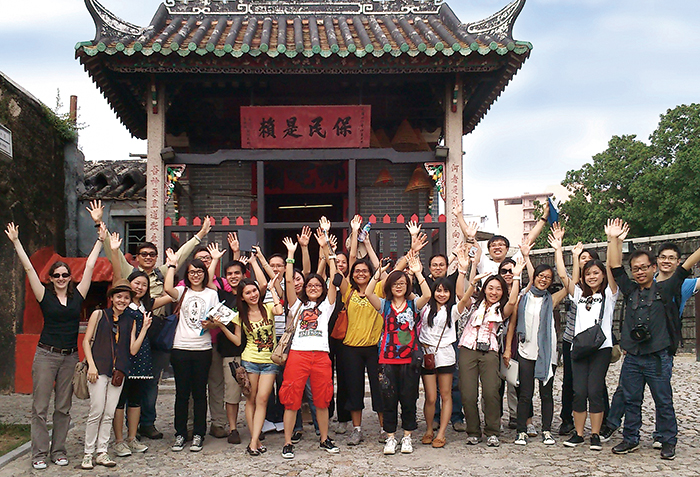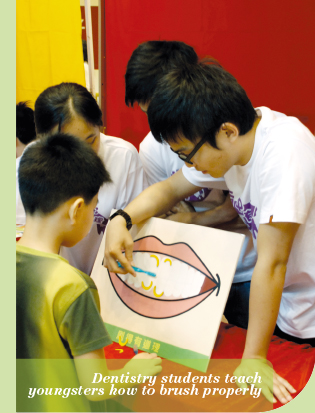

|
 TRANSFORMING SOCIETY THROUGH KNOWLEDGE
TRANSFORMING SOCIETY THROUGH KNOWLEDGE Universities are storehouses of knowledge and ideas that can benefit all of society. But how do we get these assets out to the community? This question is at the heart of Knowledge Exchange, also called KE. HKU has made KE one of its three pillars alongside teaching and research and this has given us impetus to overcome some of the challenges involved – lack of time, the need to find partners, the need to understand what the community needs. The result of our efforts has been a mushrooming of KE projects. Multiple Projects Our academic staff and students have launched dozens of funded projects that are helping local schoolchildren, small businesses, remote communities, human rights campaigns, the elderly and urban neighbourhoods, to name a few. These efforts have been supported by a formal infrastructure of funding, training and publicity to facilitate KE. In 2011–12, for instance, we introduced a pilot KE funding scheme for student projects and recommended that KE contributions be recognised in the academic staff review process. KE has also become a factor in the faculty budgeting process. It is hoped these measures will inspire more KE and raise our profile in the community. KE in some form or other has always been practised at HKU, but for many years it was informal and not explicitly recognised. Academics might have launched community-based research projects but impacts were only evaluated in terms of publication, and funding often came from private donations only. The value of such work was not fully articulated and appreciated. HKU recognised this shortfall and in 2003 adopted a goal of 'partnering with society through knowledge' in its first five-year plan. This paved the way for a more formal KE strategy and put us in a strong position when the University Grants Council (UGC) decided in 2009 to start funding what it called 'knowledge transfer'. Since then we have been building capacity and pushing the boundaries. The University regards KE as something much broader than the typical focus on technology transfer. While that activity has great merit, it is generally limited to the sciences, engineering and medicine. We believe all of our faculties, including the arts and the humanities, possess knowledge that can benefit society. Our planning therefore has been based around the expectation that every corner of the University will carry out KE. In 2010–11 we provided funding support for each faculty to set up a formal KE unit. We also launched the Faculty KE Award scheme to honour outstanding accomplishments. These measures signalled the integral place that KE had in the University's mission. We then strengthened that signal in 2011–12 in two ways. First, as mentioned, KE became one of the key profile indicators in the annual recurrent budget allocation process for faculties and it was recommended to recognise KE contributions in the academic staff review process. And second, each faculty was required to enhance knowledge access by building its own KE website. These measures are helping to formalise KE and prod staff to consider it as part of their core activities. |